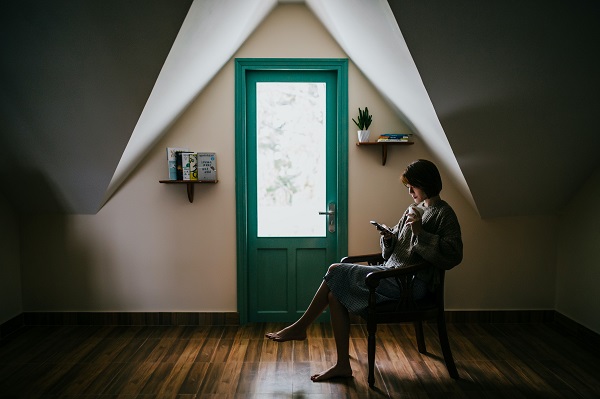
Health authorities and governments around the world have implemented social distancing measures to mitigate the spread of Covid-19. While these health initiatives protect our physical health, being alone in self-isolation can also affect our mental state. One of the consequences of being isolated is an increased risk of having anxiety attacks. In order to cope with the effects caused by anxiety, we’ve gathered ways on how to take care of your mental health to keep your anxiety in check.
According to the Anxiety and Depression Association of America (AADA), anxiety disorders are the most common mental illness in the U.S., affecting
40 million adults in the United States age 18 and older, or 18.1% of the population every year.
Anxiety is the body’s natural response to stress. It can be identified with feelings of fear or apprehension about what’s to come. Altered routines, multiple stressors, and uncertainties about the future are common triggers for anxiety. If you’re experiencing bouts with anxiety, you are not alone. With proper practices and strategies, you can manage your anxiety and improve your mental state.
Based on a March 2020 global study conducted by Kantar, during the offset of the pandemic, web browsing has increased by 70% while TV viewing increased by 63%. It was also noted that social media engagement increased by 61%.
A recent survey from the World Health Organization examined the relationship between exposure to social media during the pandemic and mental health issues. Researchers focused on the two common disorders of anxiety and depression. Results showed that 82% of respondents reported being frequently exposed to information about the pandemic through social media, while 48% of respondents made the cut off for depression. Additionally, 23% of the respondents met the criteria for anxiety.
Constantly hearing about mortality rates and lock downs can be overwhelming, and will likely elevate your anxiety levels. It’s important to be updated, but limiting your media consumption can keep your mind at peace, and your anxiety levels low. Instead of watching TV or scrolling through your phone, try reading a book or cleaning the house to freshen up your mind.
Studies have shown that strength training for adults can be beneficial for mental health, and can greatly reduce anxiety levels. While most gyms are closed down to comply with social distancing measures, there are many workout routines and exercises you can do at home without any equipment needed. There are also free workout videos online that can guide you in finding a workout routine that suits your physical needs.
According to research, routines can improve your mental health and provide psychological benefits. Having daily routines has also shown to alleviate symptoms of mental disorders, anxiety, and promote better sleeping cycles.
Even small changes in a daily routine can cause anxiety or some form of discomfort. The ongoing quarantines and mandatory work from home policies will disrupt your daily schedules in one way or another. Plan out a schedule to follow for each hour of the day and incorporate healthy activities that can refresh your mindset by including physical activities and social interactions such as reaching out to your family and friends. Maintaining the structure of your day can help you take control of your life.
Research suggests that having a vitamin D deficiency could be linked with anxiety disorders. A study from 2015 showed that people who had symptoms of anxiety or depression had significantly lower levels of calcidiol, a byproduct of vitamin D breakdown, in their bodies.
Vitamin D plays a vital part in regulating your mood and strengthening the immune system. Take some time during the day to soak up on sunlight by strolling on your backyard or sitting on your balcony for a few minutes. If there's no outdoor space to get sunlight from, sit by any window that has access to direct sunlight. You can also increase your vitamin D intake by eating foods rich in vitamin D such as salmon and mackerel. Another alternative would be to take in vitamin D supplements.
The causes of anxiety are different for each individual, but researchers believe that anxiety disorders are caused by a combination of complex risk factors, genetics, personality, life events, and even brain chemistry.
According to the AADA, anxiety disorders are treatable, and a majority of people with anxiety disorders can be helped with professional care. Some proven approaches towards treating anxiety include therapy, medication, complementary and alternative treatment, and transcranial magnetic stimulation.
There are also natural remedies that can help maintain anxiety levels. The most common natural remedies suggested by researchers and doctors consist of self-care and overall lifestyle changes.
Some of these lifestyle changes include:
Adjusting to life in quarantine can be challenging, but with the right mindset and lifestyle adjustments, it can be easier to manage your anxiety and improve your overall mental health.
Related Posts: